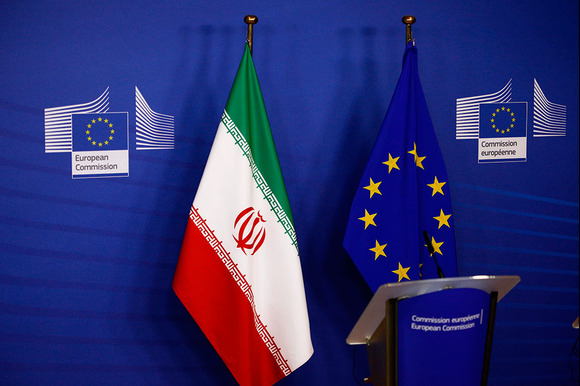Iran is set to hold high-level discussions with the United Kingdom, France, and Germany in Geneva on Friday, aiming to prevent further escalation in its conflict with Israel. This diplomatic effort comes as US President Donald Trump announced he would decide within the next two weeks whether to intervene militarily against Tehran.
Iranian Foreign Minister Abbas Araghchi confirmed the meeting in a statement published by state news agency IRNA. European officials have also verified the planned talks, which are expected to include French Foreign Minister Jean-Noel Barrot, UK Foreign Secretary David Lammy, German Foreign Minister Johann Wadephul, and EU foreign policy chief Kaja Kallas.
According to diplomatic sources, Kallas and the E3 foreign ministers had spoken with Araghchi earlier in the week, stressing the urgency of resuming negotiations and de-escalating the situation. The decision to meet in person was made at Iran’s suggestion.
Diplomatic Opportunity
French President Emmanuel Macron said European leaders were working on a plan to resolve the crisis through diplomacy. Speaking in Paris after meeting Jordanian Foreign Minister Ayman Safadi, Barrot said the three European nations were prepared to offer their “competence and experience” to support a peaceful resolution.
Barrot added, “We are prepared to engage in negotiations aimed at securing a long-term rollback of Iran’s nuclear and ballistic missile capabilities.” UK Foreign Secretary Lammy, meanwhile, was en route to Switzerland after holding talks with US Secretary of State Marco Rubio and White House Middle East envoy Steve Witkoff in Washington, DC.
Lammy reaffirmed the UK’s position: “Iran must never acquire a nuclear weapon. There is now a brief window—about two weeks—to pursue a diplomatic solution,” he said in a statement.
EU foreign policy chief Kaja Kallas reiterated that negotiations remain the preferred path forward. She emphasized that a peaceful, diplomatic solution is the most effective way to prevent Iran from developing nuclear weapons. Israel has justified its recent attacks as preemptive strikes to stop Iran’s nuclear ambitions.
Iran has consistently denied it is seeking nuclear weapons, insisting its nuclear activities are peaceful. The International Atomic Energy Agency (IAEA) has found no conclusive evidence to the contrary.
Iran Signals Openness to Dialogue
The Geneva meeting follows remarks by President Trump suggesting that new negotiations could occur soon. Although the US and Iran have held five rounds of talks over Tehran’s nuclear program, the sixth was abruptly canceled after Israel launched a surprise assault on Iranian territory last week.
From Tehran, Al Jazeera correspondent Tohid Asadi reported that Iranian officials are signaling a willingness to engage diplomatically but have ruled out talks with the US while Israeli attacks persist. “They are clear they will not resume discussions with Washington under the current conditions, but they are also keen to emphasize that diplomatic avenues are still open,” Asadi noted.
Al Jazeera’s Milena Veselinovic, reporting from Geneva, described the European diplomatic efforts as a major push to prevent the conflict from spiraling into a wider regional war. “There is significant urgency behind these efforts,” she said. “The goal is to bring both the US and Iran back from the brink.”
Trump Mulls Military Action
As diplomatic channels intensify, Trump said on Thursday that he is considering launching military strikes against Iran’s nuclear infrastructure. A final decision will be made within two weeks, he stated, noting the potential for renewed negotiations could influence his choice.
A key concern is Iran’s heavily fortified Fordow uranium enrichment facility, located deep underground and largely impervious to conventional weaponry. Experts believe that only US bunker-buster bombs are capable of reaching the site.
Israeli Prime Minister Benjamin Netanyahu voiced confidence in Trump’s leadership, saying, “I trust President Trump will act in America’s best interests. And I can say he’s already doing a great deal to support us.”
Geneva, the site of the upcoming talks, holds symbolic value as the location where an initial 2013 agreement was reached between Iran and world powers to curb Tehran’s nuclear ambitions in exchange for sanctions relief. That agreement eventually led to the 2015 Joint Comprehensive Plan of Action (JCPOA), which Trump unilaterally abandoned in 2018 during his first presidential term.
Recent negotiations between the US and Iran were still ongoing when Israel launched Operation Rising Lion on June 12, targeting Iranian military and nuclear sites. The surprise Israeli offensive reportedly resulted in the deaths of several top Iranian generals and nuclear scientists.
Since the launch of the Israeli strikes, at least 639 people, including 263 civilians, have been killed in Iran, and over 1,300 have been wounded, according to the US-based group Human Rights Activists. On the Israeli side, at least 24 fatalities and hundreds of injuries have been reported due to Iranian retaliation, Israeli health officials confirmed.






